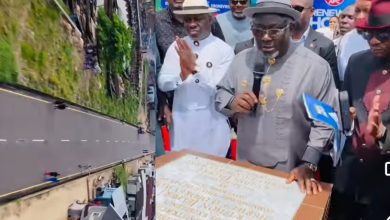
By Passman Akpos
Nigerian public speaker and social commentator, Dr. Charles Apoki, has described Nigeria as a “nation without rules,” lamenting what he called the country’s deepening culture of impunity and disorder — from road behaviour to political conduct and governance.
Reacting to the recent altercation between Federal Capital Territory (FCT) Minister, Nyesom Wike, and a Naval officer during a disputed land demolition in Abuja, Dr. Apoki said the incident was a reflection of Nigeria’s systemic decay and absence of respect for law and order.
> “Nigeria is a nation without rules. People don’t follow the law — from the way we drive, the noise we make, to how we conduct elections. It’s a reckless, dysfunctional nation,” he said.
Apoki faulted Wike’s decision to personally visit the contested site, suggesting that as a serving minister, he should have employed more strategic and lawful options.
> “Wike should not have gone to that site personally. He could have gone to court to get an injunction if he was sure the retired naval officer had no legal claim to the land. Or he could have called the Chief of Defence Staff, the Chief of Naval Staff, or even the President, who is his friend, to intervene,” Apoki advised.
He warned that leaders must learn to “pick their battles,” noting that the retired Vice Admiral in question had not even gone to the site himself but sent representatives.
Apoki described the growing “culture of intimidation” — involving the use of armed personnel, police, and dogs in civil disputes — as a national sickness.
> “We can’t flush out terrorists, yet we’re experts at intimidating our own people. This gra-gra and abuse of power must stop,” he said.
Addressing the conduct of the young naval officer, Dr. Apoki praised his restraint despite the minister’s verbal aggression, but cautioned that obedience to unlawful orders is not a defence under international law.
> “During the Nuremberg Trials, it was declared that every person is responsible for their actions, whether following orders or not,” he noted.
He, however, criticized Wike’s outburst during the confrontation, calling the use of abusive language “beneath the dignity” of his office, even though the minister’s boldness had brought national attention to the issue.
On the broader implications, Apoki pointed to what he described as Nigeria’s entrenched double standards, suggesting that reactions to such incidents often depend on ethnic identity.
> “Look at the name tag of the young officer — Yerima. The retired naval officer? Also Northern. If it were Uzodinma and Okoye, or Priye and Benibore, the story would have been different,” he said.
He concluded by urging Nigerians to reflect on the deeper lessons behind the controversy, not through the lens of political bias but as a mirror of the nation’s moral and institutional decay.
> “Don’t analyse this issue because you love or hate Wike. Analyse it because it reveals how deep our systemic decay has gone,” Apoki stated.





